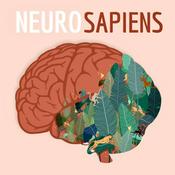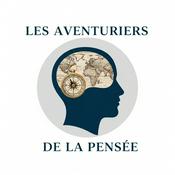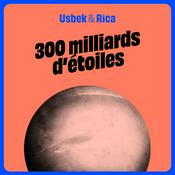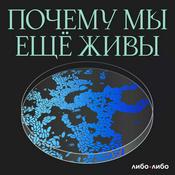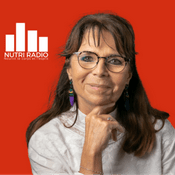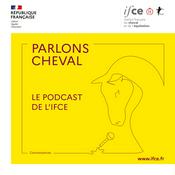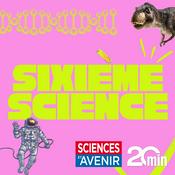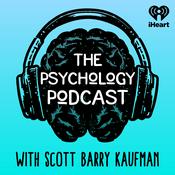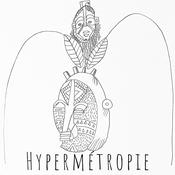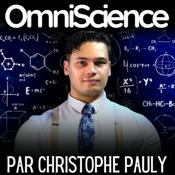454 épisodes

Where Did The Bird Flu Go? - Dr. Kevin Folta
31/5/2025 | 37 min
In this episode of the Talking Biotech podcast, Dr. Kevin Folta discusses the current state of avian influenza, particularly the H5N1 strain, its history, zoonotic potential, and the implications for both poultry and human health. Into 2025 it was being detected in wild birds,domestic flocks, cattle and humans. Where did it go? He highlights the importance of surveillance, the impact of the virus on domestic poultry production, and the ethical concerns surrounding euthanization methods. Folta also explores potential solutions, including vaccination and transgenic strategies that go unused although they are known to be effective. Finally, what is the status of emergency response? The strategic stockpiles are gone, new mRNA strategies have been defunded. With no desire to protect animals and government policy failing to take precautions to protect humans, an avian influenza pandemic may be devastating. The current situation is discussed.

The Origin of Critical Maize Traits - Regina Fairbanks and Dr. Jeffrey Ross-Ibarra
17/5/2025 | 31 min
This episode of the Talking Biotech podcast delves into the evolutionary significance and domestication history of corn (maize). Dr. Kevin Folta hosts a discussion with Regina Fairbanks and Dr. Jeffrey Ross-Ibarra from UC Davis, exploring the traits that enabled maize's domestication, the role of the TGA gene, and the implications for modern breeding. The conversation highlights the importance of understanding maize's genetic diversity and how modern tools may be used to unravel long standing questions about maize domestication.

The GE Corn Ban in Mexico - Luis Ventura
10/5/2025 | 32 min
In this episode of the Talking Biotech podcast, Kevin Folta and Luis Ventura discuss the recent constitutional ban on genetically engineered corn in Mexico. They explore the implications of this regulation, the disinformation surrounding it, and the challenges faced by Mexican farmers. The conversation also touches on the broader impact of this ban on biotechnology in Latin America and the potential economic consequences for trade between Mexico and the United States.

The Mexico GMO Corn Controversy - Luis Ventura
24/2/2025 | 34 min
This conversation explores the complex relationship between corn and Mexico, focusing on its cultural, economic, and agricultural significance. The discussion highlights the moratorium on genetically engineered (GM; GMO) corn, the public perception of biotechnology, and the impact of environmental NGOs on policy decisions. The conversation also delves into the perspectives of farmers regarding the need for access to biotechnology and the implications of recent presidential decrees on corn production in Mexico.

Synthetic Biology and Natural Products - Dr. Philipp Zerbe
01/2/2025 | 38 min
This conversation explores the intersection of natural products and synthetic biology, emphasizing the importance of science communication and outreach. Julia Ball shares her passion for connecting the public with plant science, while Dr. Philip Zerbe discusses the potential of synthetic biology in producing valuable natural products, particularly terpenoids. The discussion highlights the challenges and opportunities in educating the public about biotechnology and the role of synthetic biology in sustainable drug production. In this conversation, Dr. Philipp Zerbe discusses the intersection of synthetic biology and natural products, focusing on the advancements in omics technologies and their role in bioactivity screening and pathway engineering. He highlights the recent breakthroughs in Taxol production, the complexities of intellectual property in synthetic biology, and the varying consumer perceptions of bioengineered products. Additionally, he provides insights into career guidance for students interested in these fields, emphasizing the importance of hands-on experience and networking.
Plus de podcasts Sciences
Podcasts tendance de Sciences
À propos de Talking Biotech with Dr. Kevin Folta
Écoutez Talking Biotech with Dr. Kevin Folta, Neurosapiens ou d'autres podcasts du monde entier - avec l'app de radio.fr

Obtenez l’app radio.fr gratuite
- Ajout de radios et podcasts en favoris
- Diffusion via Wi-Fi ou Bluetooth
- Carplay & Android Auto compatibles
- Et encore plus de fonctionnalités
Obtenez l’app radio.fr gratuite
- Ajout de radios et podcasts en favoris
- Diffusion via Wi-Fi ou Bluetooth
- Carplay & Android Auto compatibles
- Et encore plus de fonctionnalités


Talking Biotech with Dr. Kevin Folta
Téléchargez l’app,
Écoutez.
